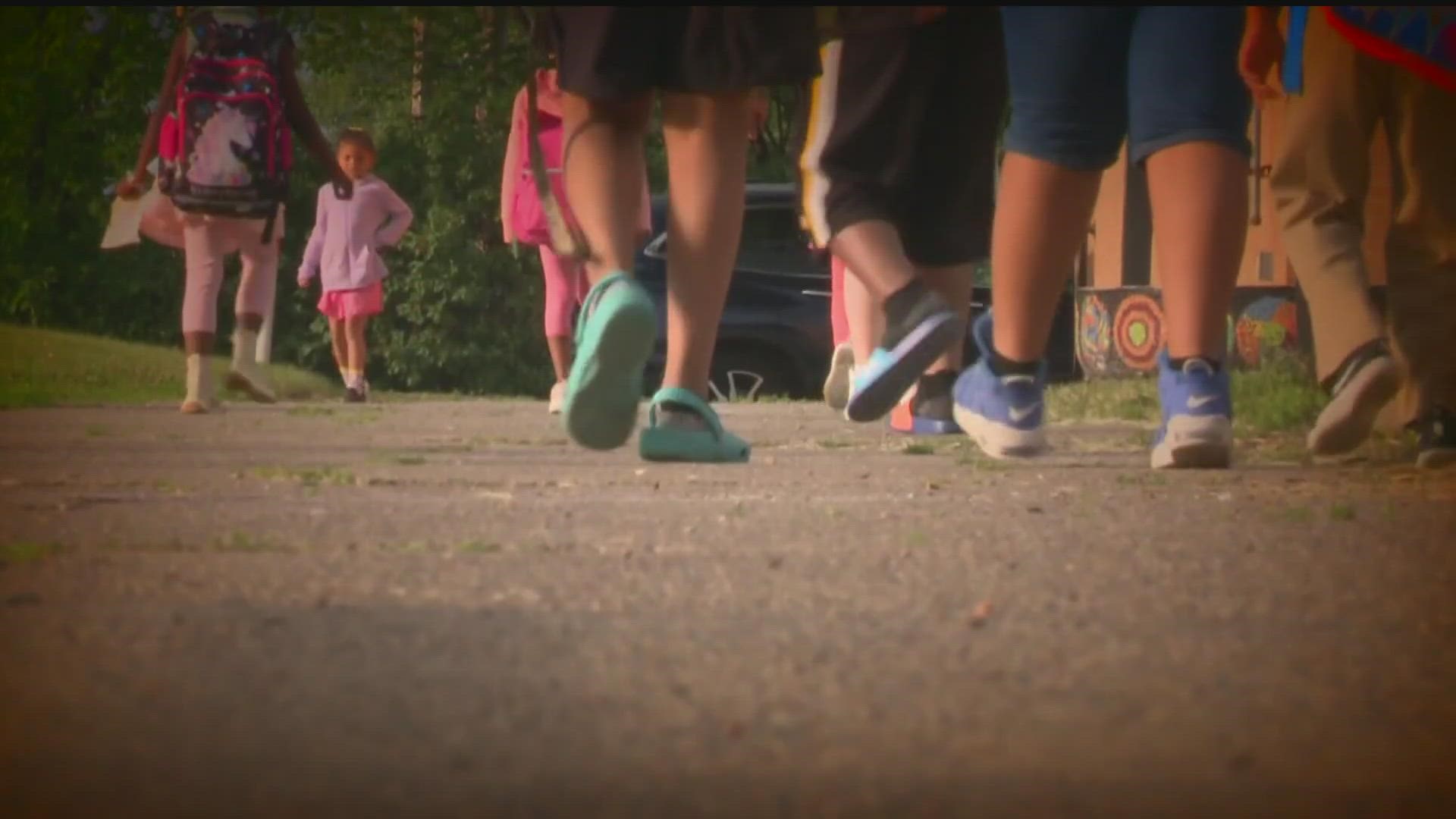ST PAUL, Minn. — Cat Briggs has fond childhood memories of "Peggy Bus 39," the woman who drove Cat's school bus throughout her youth. Briggs, now a bus driver for the Rosemount-Apple Valley-Eagan Schools, is one of 100,000 thousand hourly school and college workers in Minnesota who don't qualify for unemployment benefits.
Briggs joined other hourly workers at the Minnesota State Capitol Tuesday, to testify on behalf of a bill that would extend jobless benefits to bus drivers, teacher's aides, paraprofessionals, cafeteria workers and others excluded by law from the state's unemployment insurance system.
"School workers should not be asked to go from financial crisis to financial crisis. We deserve the same benefit everyone else gets," Briggs told reporters afterward.
Those workers, by law, are excluded from filing for jobless benefits if they're laid off or furloughed during summer break because there's a "reasonable expectation" they'll be rehired with schools start again in the fall.
Burnie Burnham, the president of the Minnesota AFL-CIO, said an entire category of workers shouldn't be left out in the cold.
"As someone who taught elementary schools for 15 years, I can tell you that educators can’t do our jobs without the support staff in our schools," Burnham told reporters.
"For people who do the important work that allows Minnesotans to learn, it’s an embarrassment that our state treats them differently than other workers."
Mick Kelly, who has worked in food service in University of Minnesota residence halls for 21 years, reminded the capitol press of the staffing shortage that led to disrupted service in U of M residence halls last fall.
"Part of the solution is having unemployment benefits available to those of us who work at the University of Minnesota. It’s absolutely necessary, time for this change and hope it comes this session."
Supporters of removing that blanket exclusion say it would help the district attract and retain employees at a time when staff shortages are rocking schools.
"Folks are having a hard time retaining these workers because they’re often the lowest paid workers and they don’t have that security," said Rep. Emma Greenman, the Minneapolis Democrat who is the chief author of the bill in the House, explained.
Laura Carpenter, the parent of a child who needs paraprofessionals at school, said the staff turnover is very disruptive to children like her son.
Opponents say they're worried such a change could actually worsen the staffing shortfalls because hourly workers receiving half pay for collecting unemployment won't be available to step in and take summer jobs with the schools.
"Essential summer programming should be taught by qualified people and if the districts have difficulty hiring enough people for summer school, these programs can’t be offered," Denise Dittrich of the Minnesota School Boards Association, told a legislative panel Wednesday.
One staff report predicted 62,000 excluded workers would file for unemployment, at an average cost of $4,000 if they collected for all 11 weeks between school years. That's based on trends noted in Illinois when the state removed the exclusion of those workers.
Like all other workers drawing unemployment, hourly school workers would be required to keep seeking other jobs and accept one that's a good match with their skills.
Scott McMahon, speaking for the Minnesota School Bus Association, said local school districts would need help paying into the system for the workers.
"We’d like to be on the record saying for this to go forward we need it to be fully funded. The districts need the revenue to pay the increased unemployment costs."
Rep. Dave Baker, a Republican from Willmar, suggested that base pay for the workers could be boosted as an alternative to having them join the unemployment insurance system.
"Why don’t we just pay them more upfront? Why don’t we take that money and throw it into the kiddy because what if we run out of money, which we’re going to in a few years, we don’t exactly know how this is going to work," Rep. Baker asserted.
The authors of the House and Senate bills say this is the time to act, while the legislature is under single-party control and is sitting on top of a $17 billion projected surplus.
"This discrepancy in our laws is that we’re leaving this whole group of people out of this basic benefit that other workers in our state enjoy and can count on," Sen. Jennifer McEwen, the Duluth Democrat who is carrying the Senate version of the bill, told reporters.

